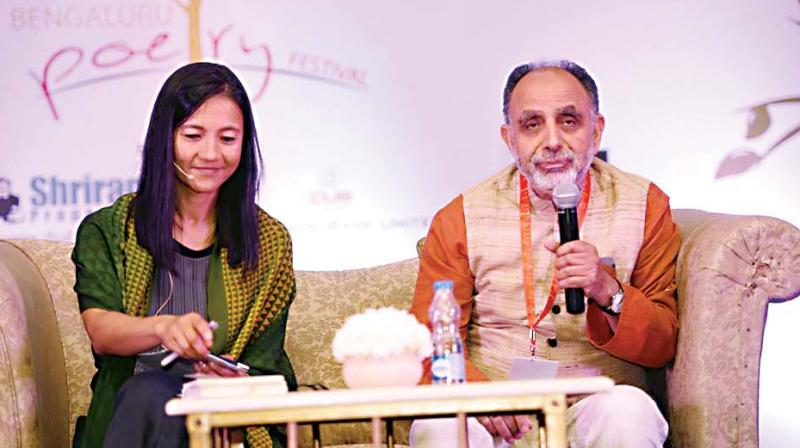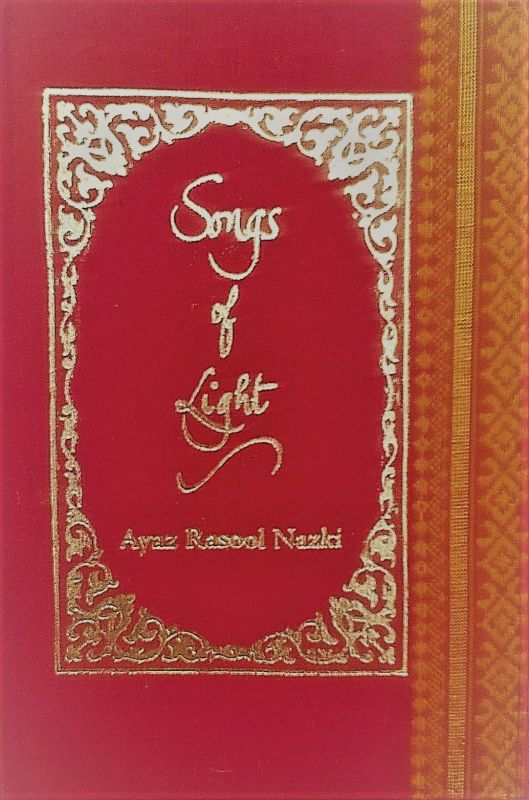Nazqi: A poet of peace from the Valley of conflict!

Bengaluru: "My poems are not mine they come to me from the void, I am a greedy old man," says Kashmiri poet Ayaz Rasool Nazqi in his book, Songs of Light. "I don't sit down everyday, thinking, 'I'm going to write a poem about this'. A genuine poet never decides these things. If it has to come, it will come, it has its own calendar and schedule. Even the language chooses those of us who write in a few of them," he said. Nazqi ambles back into the Poet's Lounge after his panel, "Poems Without A Home," at the Bengaluru Poetry Festival and makes straight for a quiet corner. As he begins to talk, however, face lit up with a smile, of Rumi's Masnavi, Khayyam's Rubaiyat and of course, of his father, the celebrated Kashmiri poet and scholar, Mir Ghulam Nazqi, people in the vicinity leave their seats and drift slowly towards him, just to hear him speak.
"I'm a proud Kashmiri," he says. Born and raised in a land of conflict, Nazqi writes poems of peace. "That's what poetry is about. There is a difference between writing a press note, a protest note and a poem." Poetry of Resistance has drawn youngsters to it in droves - "When I actually look into those compositions, there is protest, there is resistance. But there is no poetry. I am not detached from my immediate society, what happens there is very dear to my heart. As a poet, however, my first commitment is to my art."
This, he says, is the "durability and longevity of poetry. It comes because of its universality and should transcend time and space." Bloodshed, violence, guns - contemporary poetry is choked with metaphors of death and conflict - "The situation in Kashmir informs all that we write. You can't keep it out. I can't. But what happens if the conflict is resolved? Do we poets shut shop?"

Born into a family of poets and scholars, Nazqi began scribbling poems when he was around six years old. "I went on to become a veterinary doctor," he said.
His serious writings began when he decided to translate his father's work - "He wrote his quatrains in Urdu and I translated them into English, keeping the rhyme and metre intact. It came to me that way and was well received." Echo, A Son's Tribute was published in 1999, by which time Ayaz Nazqi's name had already begun to appear in a number of journals and magazines. A year later, he brought out his first collection of poetry - he has three collections in Kashmiri, three in Urdu and one in English.
"We grew up in a family where scholarship was linked to spirituality. My father wrote about the trials of the self, of life, death and truth. This is how we were raised and it removed us from the immediacy of divisive thought," he says, telling the story of a Scottish woman who reached out to him on social media. "I may write about violence, but a reader at the other end of the world should be able to relate. If you can identify with one line of my poetry, I am satisfied."
Nazqi is currently finishing a work of fiction, Satisaras: The Land of Demons. Taken from local myths, the name comes from the popular belief that the land was once a great lake, ruled by a demon.
"It will trace 5000 years of Kashmiri history, with my characters moving from one epoch to the next," he explained.

